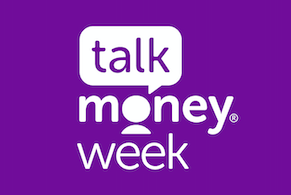
Living with debt is one of the greatest financial challenges there is. Nobody winds up in debt on purpose, but life can be unpredictable, especially when it comes to your finances. It’s a hard subject to discuss, especially with a spouse or partner, but that’s why we’re here. For this year’s #TalkMoney week, we want to open the door to positive conversations about finances, especially when it comes to debt management. While we recognise that each and every person has a unique set of circumstances, we’ve compiled a quick guide with some helpful tips and tricks on how to better manage your debt.
Take an honest assessment of your existing debts
Debt can be overwhelming and can get out of hand quickly, so it’s crucial that you keep tabs on who you owe and how much you owe them, along with how much interest each debt will incur over time. This one may seem like an obvious first step to take, but many people allow the overwhelming nature of debt paralyse them. The only way out of debt is to address it though, so make sure you keep a solid record of how much you owe. That way, you can start your debt management by making an actionable plan on how to pay it off.
Determine the order in which to pay off your debts
Once you’ve determined how much money you owe, and to whom you owe it, the next step is to figure out which debt(s) to pay off first. This can be tricky, especially if you have more than one source of outstanding debt. That being said, there are two general approaches you can take that have proven effective in most scenarios. The first method is to pay off the debt with the highest interest rate first, especially if it’s credit card debt. In short, if it’s going to cost the most money over time, it may be best to pay it off first.
The second approach you can take is to pay off the debt with the lowest remaining balance first instead. If you have a lower balance on one of your credit card debts, for example, it may make more sense to pay that off completely before tackling larger sources of debt. The advantage to this approach is that you may be able to eliminate a source of debt more quickly, which will reflect better on your credit score.
Pay your bills on time if possible
It goes without saying that you should always pay your bills on or before their due date, but there are two key factors in play here that make this an important step. First off, if you don’t make your payments on time, you can accumulate late fees. That can run the risk of putting you even farther behind on your plan to get out of debt. Secondly, your payment history can drastically affect your credit score. Missed payments will be reflected on your credit report, and that can result in a lower credit score. Conversely, you can also increase your credit score by maintaining consistency in your payments over time, so. It’s important to always pay on time whenever you can. This step is really a double-edged sword, and while it may not be possible every month, it’s important to maintain consistency whenever possible here.
Keep an eye on your credit report
Many people believe the common misconception that checking your credit report will lower your credit score. Simply put, that’s not true. In fact, it’s important to check your credit report regularly to make sure that it’s accurate, and that your score is trending in the right direction. The goal here is to raise your credit score as you lower your debt.
Budget, budget, budget
Last, but certainly not least, we want to stress that budgeting is of the utmost importance. Debt management isn’t a passive thing; you have to be intentional and aggressive when cutting down on your debts. Making use of a personalised budget can help you know how much money you can feasibly put towards your debts each month. By writing or typing it all out in a ledger, you can categorise your expenditures and bills each month, along with how much money you can pay each month towards your debts.
All of these options have their pros and cons, but ultimately it will be up to you to decide which method will be best for your individual needs. Tackling debt can be intimidating, but we hope that this quick guide will help you to start those conversations about debt management so that you can make a plan to get out from under it. If you need more specific advice tailored to your specific situation, we highly recommend reaching out to the Money Advice Service. They offer free, impartial advice on personal finances, and can help you plan to pay off debts, assist with budgeting tools, and much more!
Source: The Balance, Wells Fargo